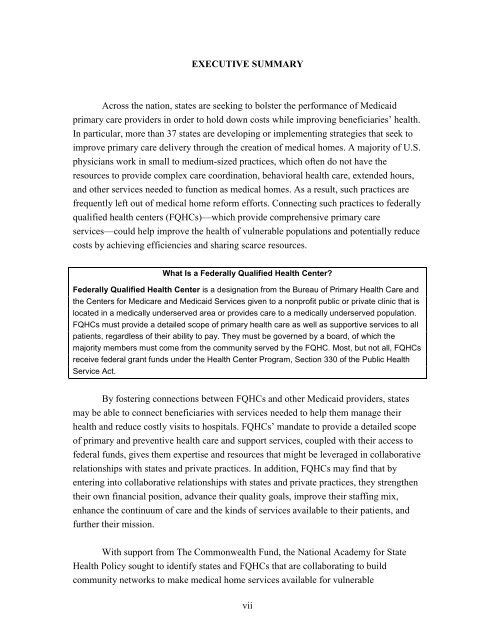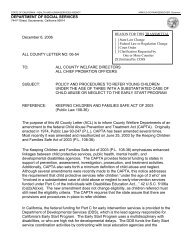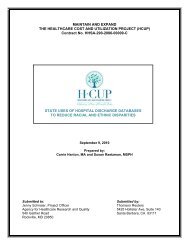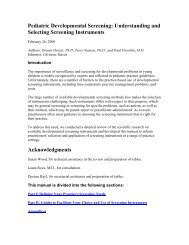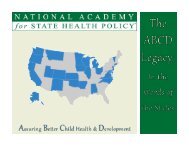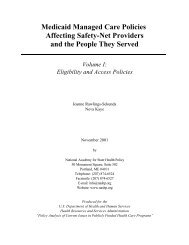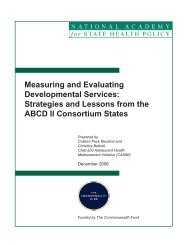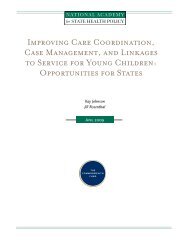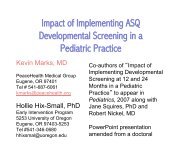Developing Federally Qualified Health Centers into Community ...
Developing Federally Qualified Health Centers into Community ...
Developing Federally Qualified Health Centers into Community ...
Create successful ePaper yourself
Turn your PDF publications into a flip-book with our unique Google optimized e-Paper software.
EXECUTIVE SUMMARY<br />
Across the nation, states are seeking to bolster the performance of Medicaid<br />
primary care providers in order to hold down costs while improving beneficiaries’ health.<br />
In particular, more than 37 states are developing or implementing strategies that seek to<br />
improve primary care delivery through the creation of medical homes. A majority of U.S.<br />
physicians work in small to medium-sized practices, which often do not have the<br />
resources to provide complex care coordination, behavioral health care, extended hours,<br />
and other services needed to function as medical homes. As a result, such practices are<br />
frequently left out of medical home reform efforts. Connecting such practices to federally<br />
qualified health centers (FQHCs)—which provide comprehensive primary care<br />
services—could help improve the health of vulnerable populations and potentially reduce<br />
costs by achieving efficiencies and sharing scarce resources.<br />
What Is a <strong>Federally</strong> <strong>Qualified</strong> <strong>Health</strong> Center?<br />
<strong>Federally</strong> <strong>Qualified</strong> <strong>Health</strong> Center is a designation from the Bureau of Primary <strong>Health</strong> Care and<br />
the <strong>Centers</strong> for Medicare and Medicaid Services given to a nonprofit public or private clinic that is<br />
located in a medically underserved area or provides care to a medically underserved population.<br />
FQHCs must provide a detailed scope of primary health care as well as supportive services to all<br />
patients, regardless of their ability to pay. They must be governed by a board, of which the<br />
majority members must come from the community served by the FQHC. Most, but not all, FQHCs<br />
receive federal grant funds under the <strong>Health</strong> Center Program, Section 330 of the Public <strong>Health</strong><br />
Service Act.<br />
By fostering connections between FQHCs and other Medicaid providers, states<br />
may be able to connect beneficiaries with services needed to help them manage their<br />
health and reduce costly visits to hospitals. FQHCs’ mandate to provide a detailed scope<br />
of primary and preventive health care and support services, coupled with their access to<br />
federal funds, gives them expertise and resources that might be leveraged in collaborative<br />
relationships with states and private practices. In addition, FQHCs may find that by<br />
entering <strong>into</strong> collaborative relationships with states and private practices, they strengthen<br />
their own financial position, advance their quality goals, improve their staffing mix,<br />
enhance the continuum of care and the kinds of services available to their patients, and<br />
further their mission.<br />
With support from The Commonwealth Fund, the National Academy for State<br />
<strong>Health</strong> Policy sought to identify states and FQHCs that are collaborating to build<br />
community networks to make medical home services available for vulnerable<br />
vii


